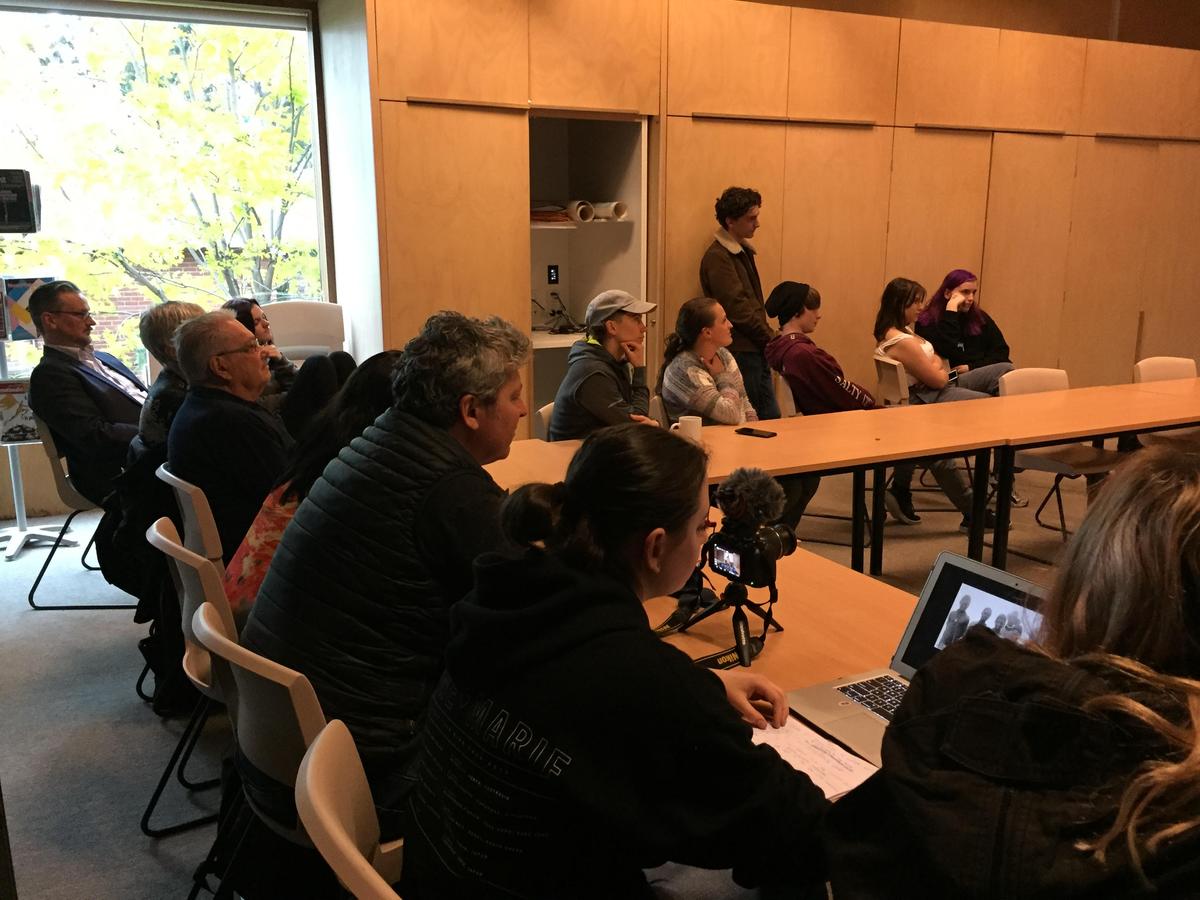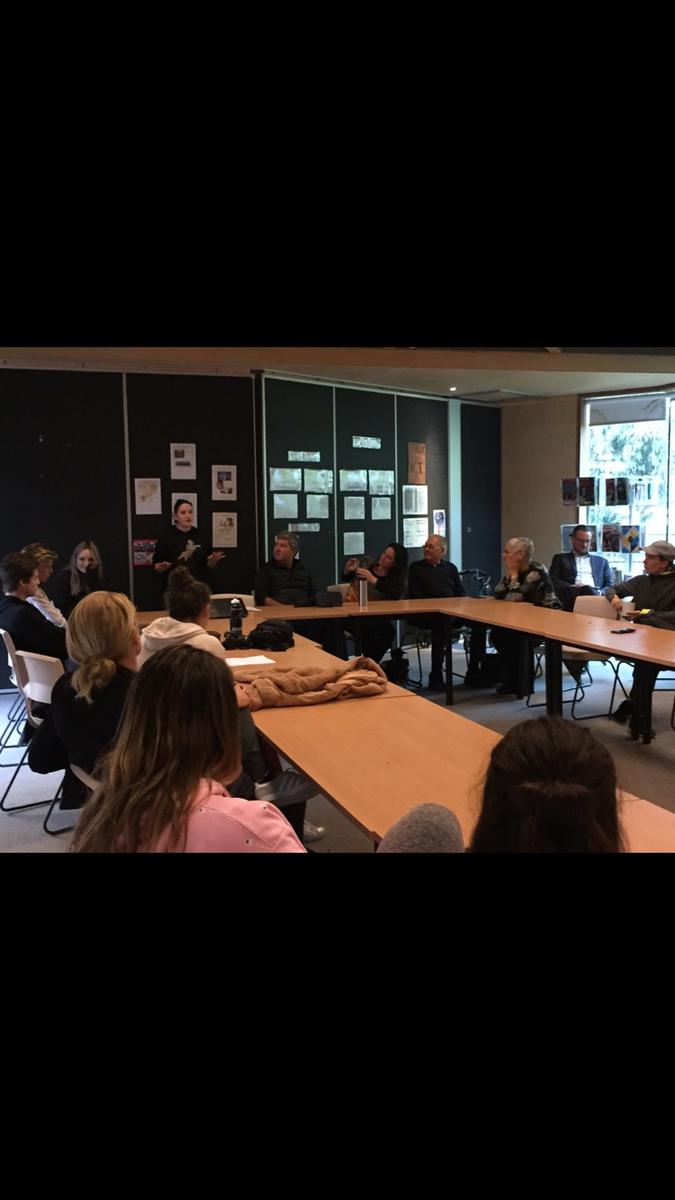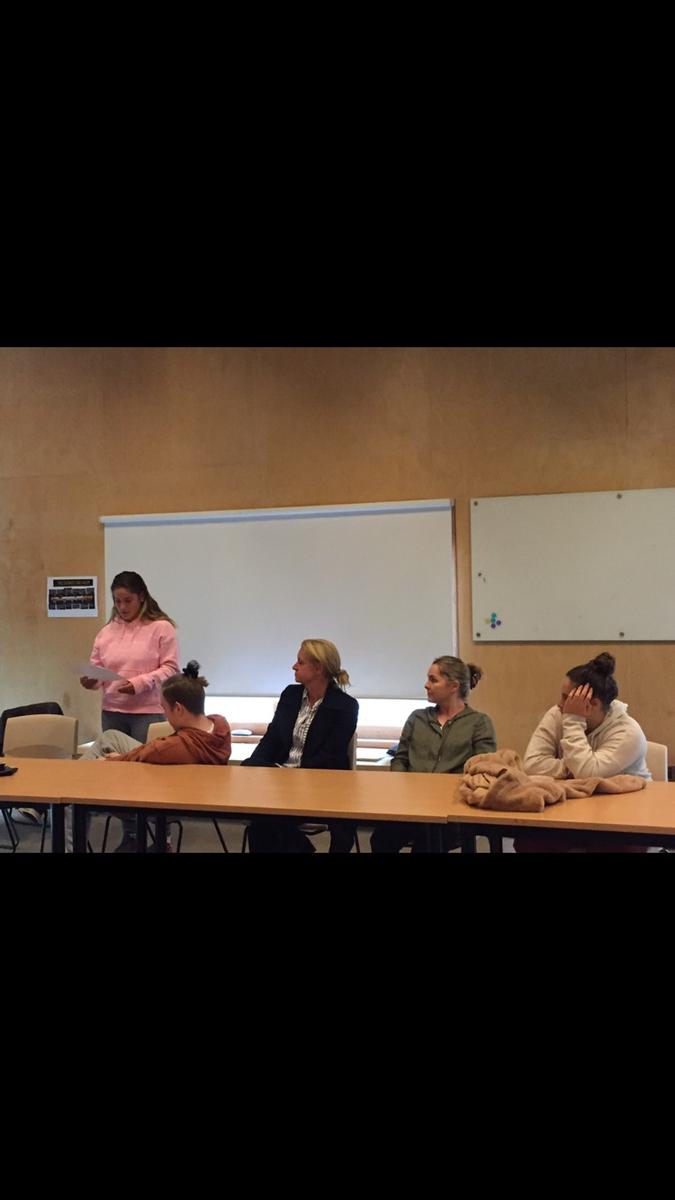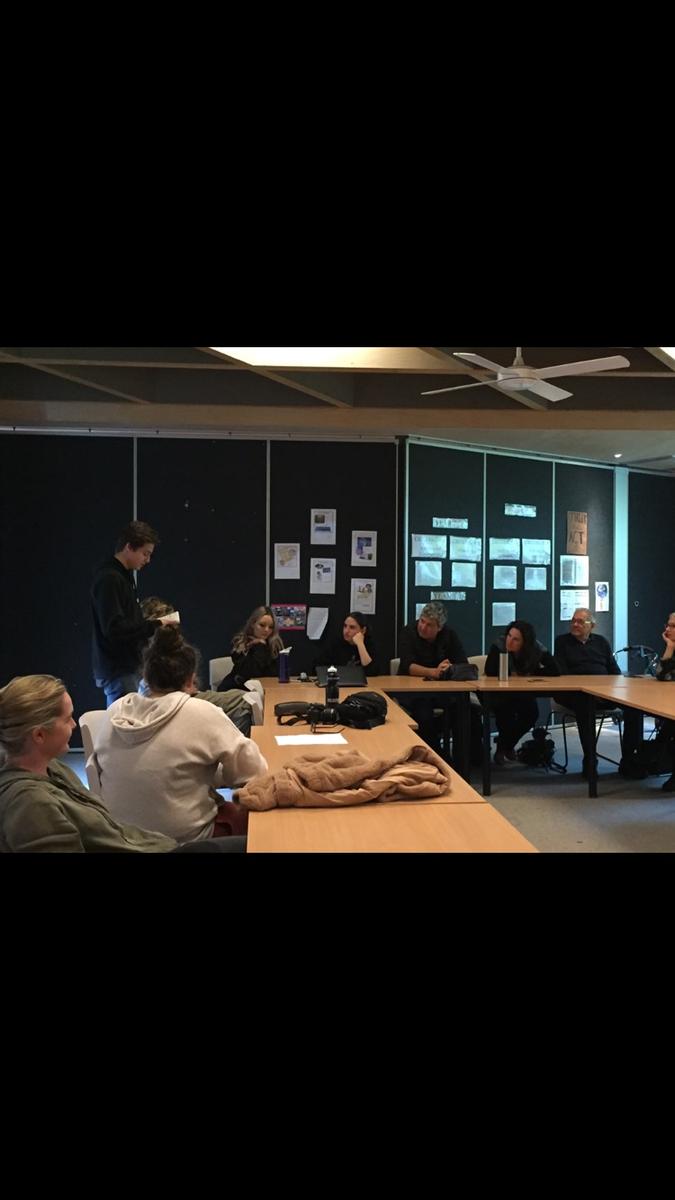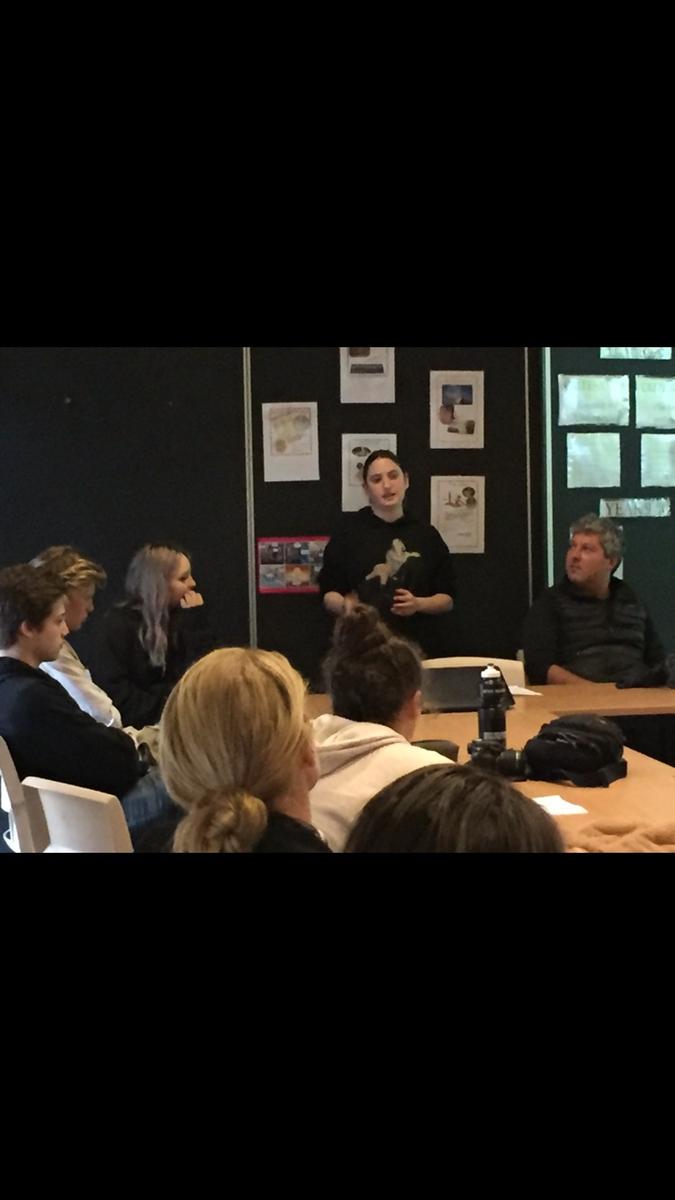Poetry readings
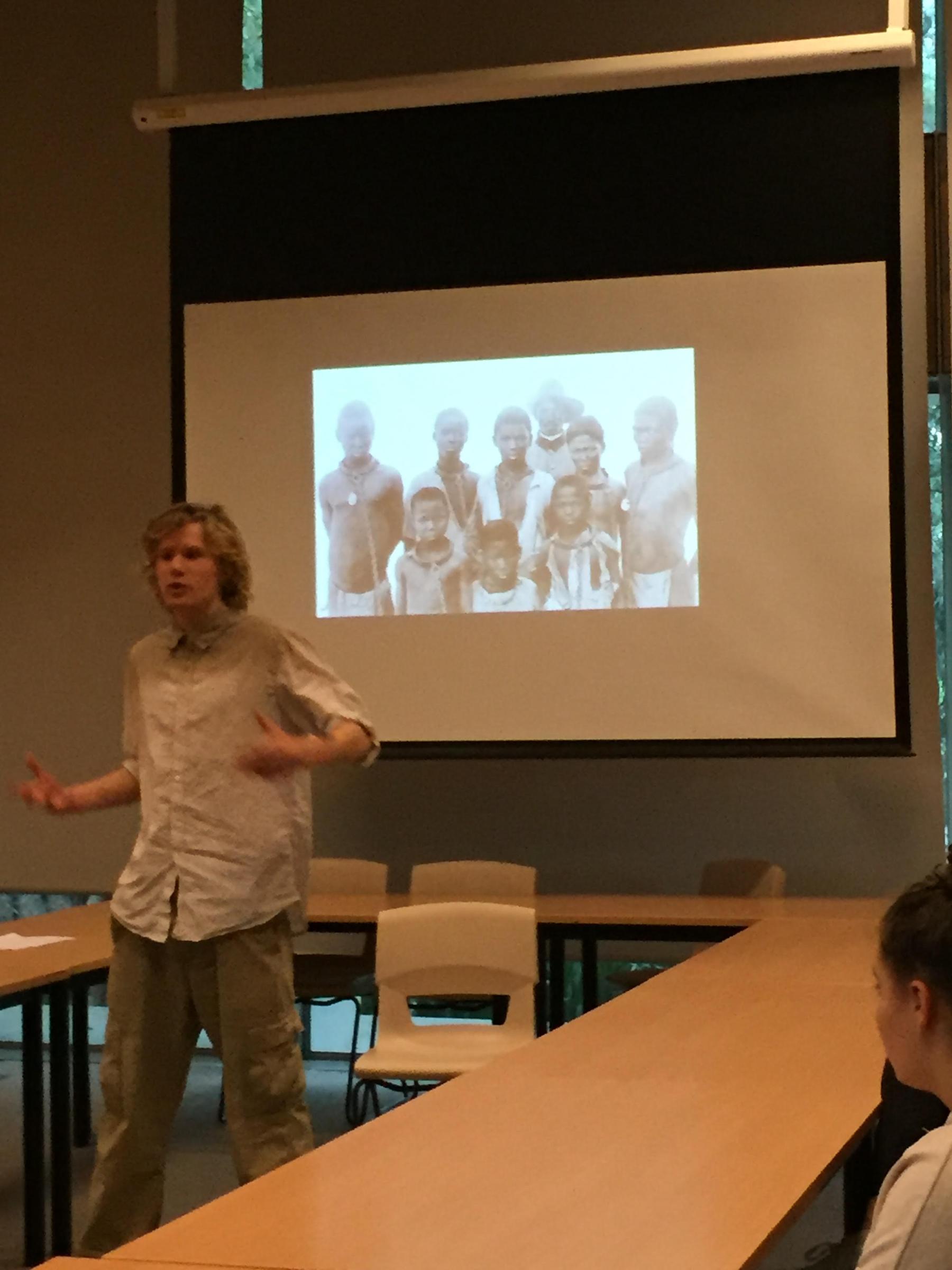
Year 10 Language and Literature
Poet Alice Walker stated that ‘...poetry is the lifeblood of revolution and the raising of consciousness’. William Wordsworth stated that ‘Poetry is the spontaneous outflow of powerful feelings...’. An anonymous writer suggested that ‘poetry was basically anything that called itself a poem’ whereas Plato suggested that poetry ‘came nearer to vital truth than history’.
In Term 3, Year 10 Language and Literature students undertook a unit on poetry. Guided by our statement of inquiry, that ‘The aesthetics of poetry connect self-expression and social change’, both classes investigated and experimented with the literary devices and performance techniques needed to write a poem. Throughout the term, students were also invited to find poems they liked and share them with the class. We held readings, watched performance poets on YouTube and many classes were positioned as writing workshops where we applied what we were learning to who we are, what we feel and how we make sense of the world. We also questioned whether lyrics were poetry and attempted to apply different rhythms and performance devices to well-known lyrics to test our hypotheses.
What we all came to agree upon is that poetry requires a great deal of bravery. Even when the poem is, say, about cheese or evolution, we need to access something of ourselves to write it; and, if we are to perform it, we have to embody in some way our passions, how we feel or what we believe. This can put us in a vulnerable position, particularly if we think about performing our work in front of our own peers. As a result, discussions were had throughout the term about how we could cultivate safe and supportive environments for the sharing of work and what choices we may need to make as writers about what we write (if we know we are to share it with peers).
A decision was made to host an afternoon poetry reading so that we could extend a welcome to families and friends to bare witness to the work done and achieved in the unit. This I should note did not come without a few discussions with students who were greatly challenged by this thought. On the day in fact, students in my class came up with a list of things to make the event ‘easier’ including a lesson to practise, an acknowledgment of the support needed through rounds of applause and deep listening from the audience; and that I be the first person to read. This last point was a great challenge with students suggesting ‘…teachers have to be able to do something that you’re asking us to do’. Challenge accepted!
On Wednesday 16 October, we made our way to the library after school and sat in the round to share our work. It was wonderful to see parents and grandparents as well as those supportive friends and teachers Emily Nancarrow and Ashleigh Greaves who exemplified many of the desires of those reading when it came to deep listening and support. We thank you here.
Students who struggle to attend class… read their poems. Students who wrote deeply personal pieces… read their poems. Students who were literally terrified… read their poems. And we were all the better for it. Moved. Changed. Inspired.
We saw as much as listened… students exemplifying creative performance techniques including creating dark and quiet places to create tension or peace as they, say, read poems about death. We saw the use of media, gesture, facial expressions and body language …and we felt the conviction of their words.
Well done to those students who read and now have such an experience under their belt.
Kate Ellis
Language and Literature and Drama/ Theatre teacher

